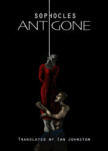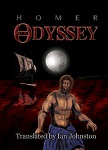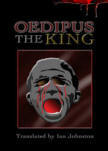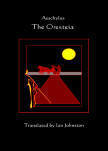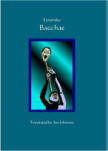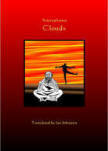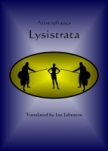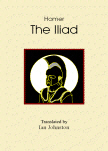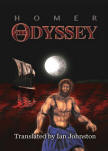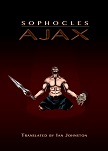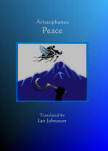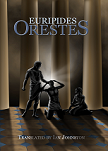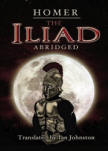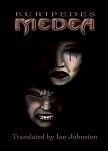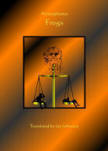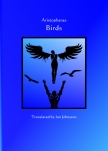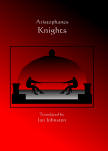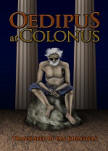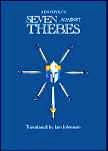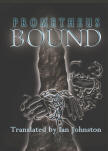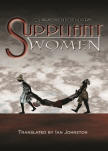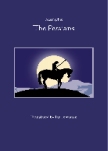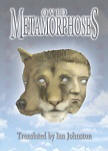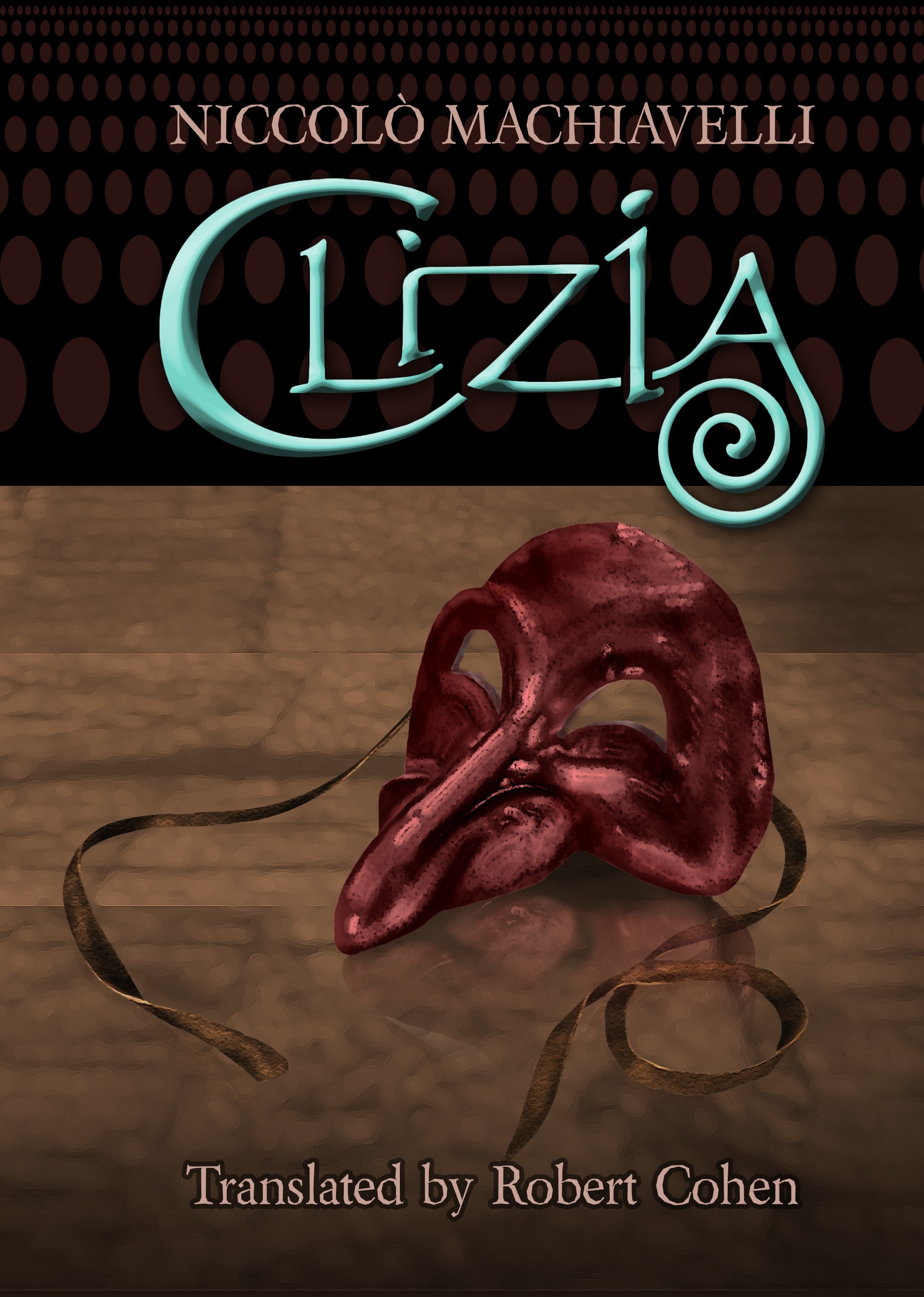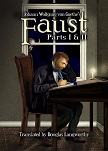Questions? Call us toll free:
1-800-856-3060
& Epic Poetry
Translated by Ian Johnston
Sophocles (495 - 406 BC), the most prolific of the Greek playwrights whose works survive, wrote a number of plays about the family of Oedipus, legendary king of Thebes. Of these plays, the two most popular are Oedipus the King and Antigone.
The Odyssey by Homer
Translated by Ian Johnston
The Odyssey is one of two surviving poems of the fabled poet, Homer, a blind bard who kept alive the feats and darings of ancient heroes and their gods. It comprises one of oldest and finest epic poems in Western culture.
Translated by Ian Johnston
Oedipus the King has long been regarded, not only as Sophocles' finest play, but also as the purest and most powerful expression of Greek tragic drama. In this new verse translation, Ian Johnston captures the compelling tension of Sophocles' drama, the intense poetic vision which has made this play justly celebrated as one of the great masterpieces of Western literature.
read more and see news, reviews & interviews
The Oresteia by Aeschylus
Translated by Ian Johnston
William von Humbolt wrote of Aeschylus' The Oresteia that "among all the products of the Greek stage, none can compare with it in tragic power; no other play shows the same intensity and pureness of belief in the divine and good; none can surpass the lessons it teaches and the wisdom of which it is the mouthpiece."
Bacchae by Euripides
Translated by Ian Johnston
Bacchae holds up a desperate view of human experience, a vision that led Aristotle to call Euripides "the most tragic of the poets." Its first production took place in 405 BC in the annual competition for tragic drama, where it won first prize. It has remained one of the best-known and most frequently performed Greek tragedies ever since, one of the greatest works of classical Greek culture.
Clouds by Aristophanes
Translated by Ian Johnston
The comic drama Clouds (423 BC) is one of the most famous and popular satires ever written. In it Aristophanes, the greatest comic dramatist of ancient times, takes issue with the intellectual and moral depravity of his fellow Athenians, particularly with their thirst for radical innovations in traditional ways of thinking and for their unscrupulous self-interest.
Lysistrata by Aristophanes
Translated by Ian Johnston
Lysistrata, one of the most famous and most popular plays of the great comic writer Aristophanes (456-386 BC), tells the story of how the women from the Greek city states decide to take over the public treasury in Athens and to stop having sex with their husbands until the men agree to stop fighting a destructive civil war.
The Iliad by Homer
Translated by Ian Johnston
The Iliad is the oldest and finest epic poem in Western culture. This book contains a new translation by Canadian Professor Ian Johnston. It has been translated from the original Greek into a modern English poetic form and was designed first and foremost for those who will be reading Homer's Iliad for the first time.
The Odyssey Abridged by Homer
Translated by Ian Johnston
Ian Johnston's abridged version of this magnificent poem, approximately one third the length of the original, is based upon his acclaimed new translation of the entire work. Every line in the abridged text comes from Homer's poem, and a few short summary comments are included to keep the narrative thrust of the action coherent.
Philoctetes by Sophocles
Translated by Ian Johnston
The story of Philoctetes, a warrior leader on the Greek expedition to Troy, has long been a favourite of writers and visual artists. Wounded by a snake bite on the journey to Troy, Philoctetes was abandoned on a deserted island by the Greek leaders, because the smell of his wound and his cries of pain prevented the other leaders from carrying out their duties...
Ajax by Sophocles
Translated by Ian Johnston
Sophocles (c. 496 BC to 406 BC), the great Athenian tragic dramatist, wrote Ajax early in his career, perhaps around 440 BC. It is one of the seven plays which survive from the more than one hundred and twenty plays Sophocles wrote. Ajax presents the story of the final day in the life of one of the most glorious heroes from the world of the Iliad, the great Ajax...
Peace by Aristophanes
Translated by Ian Johnston
Aristophanes (ca 446-386 BC), the most famous writer of Old Comedy in Classical Athens, wrote Peace during the Peloponnesian War (the work was first produced in 421 BC). In the play he makes a passionate, lyrical, and nostalgic plea for peace between the warring Greek states. The play is justly famous, not merely for the usual Aristophanic blend of robust humour and vitriolic satire....
Translated by Ian Johnston
In Orestes, the famous Greek tragic dramatist Euripides (c. 480 BC to 406 BC) revisits the bloody history of the House of Atreus and offers his very different vision of the reactions of Orestes and Electra to the death of their mother, Clytaemnestra, whom they have just murdered in order to avenge the killing of their father, Agamemnon....
The Iliad Abridged by Homer
Translated by Ian Johnston
Ian Johnston's abridged version of Homer's great poem is based upon his acclaimed translation of the complete epic. The abridged text is approximately one third of the original and presents a coherent narrative poem in which every line is taken from Homer's text, with occasional short summaries to keep the story coherent.
Medea by Euripides
Translated by Ian Johnston
Euripides' Medea, has long been considered one of the great masterpieces of classical Greek drama and has attracted attention in modern times as one of the first great works of feminist drama. The play pits Medea, a murderously passionate barbarian princess, against her husband, Jason, the leader of an expedition of Greek heroes who set out to capture the fabled Golden Fleece.
Frogs by Aristophanes
Translated by Ian Johnston
Frogs is by common consent one of the finest achievements of Aristophanes (456 BC to 386 BC), the greatest writer of comic drama in classical Athens and among most famous writers of dramatic comedy in our Western tradition. The play was first performed at a Festival of Dionysus in Athens in 405 BC, at a time when the disastrous Peloponnesian War between Athens and Sparta was nearing its end...
Birds by Aristophanes
Translated by Ian Johnston
The Birds has long been hailed as one of the finest masterpieces written by Aristophanes (ca. 456 BC - ca. 386 BC), the greatest of all classical Athenian comic dramatists. First performed in 414 BC, at the height of the Peloponnesian War, which pitted Athens against Sparta, the play celebrates the extraordinary character of Athens in a manner that is at once robust, lyrical, satiric, and full of ironic resonance.
Knights by Aristophanes
Translated by Ian Johnston
Knights by Aristophanes (c. 446 to c. 386 BC ), the greatest writer of Old Comedy, is a bawdy, incisive, and evocative satire on Athenian political life during the Peloponnesian War. The play is a fierce and sustained attack on one of the most popular politicians of the day, the pro-war demagogue Cleon, who had prosecuted Aristophanes for one of his earlier works...
Oedipus at Colonus by Sophocles
Translated by
Ian Johnston
Oedipus at Colonus, the last work written by the great Athenian dramatist Sophocles (497-406 BC), was first produced at Athens a few years after the playwright’s death. The play depicts the last day in the life of Oedipus, once king of Thebes, who after years of wandering as a blind vagrant guided by his daughter Antigone, has reached Colonus out the outskirts of Athens.
Seven Against Thebes by Aeschylus
Translated by Ian Johnston
Seven Against Thebes, written by Aeschylus (525-456 BC), the oldest of the three famous ancient Greek writers of tragedy whose work has survived, is the third play in a trilogy which tells the story of the battle between the sons of Oedipus for control of Thebes (the other two plays are lost). The first production (in 467 BC) won first prize in the annual competition for tragic drama...
Prometheus Bound by Aeschylus
Translated by Ian Johnston
Prometheus Bound, a tragedy traditionally attributed to the famous Athenian playwright Aeschylus (c. 525 BC – c. 456 BC) is the most famous dramatic depiction of one of the most important mythic figures among the ancient Greeks. Prometheus, a Titan, one of the family of deities preceding Zeus, helped Zeus overthrow his father, Cronos, and usher in the rule of the Olympian gods..
Suppliant Women
Translated by Ian Johnston
The Suppliant Women (also called Suppliant Maidens or Suppliants) by Aeschylus is the first (or possibly the second) in a three-play sequence based on the well-known story of the daughters of Danaus, the Danaids, who fled from their home in Egypt and sailed to Argos to escape from having to marry their cousins. The other plays in the trilogy have been lost, except for fragments..
The Persians by Aeschylus
Translated by Ian Johnston
Aeschylus (c.525 BC to c.456 BC) was one of the three great Greek tragic dramatists whose works have survived. Of his many plays, seven still remain. Aeschylus may have fought against the Persians at Marathon (490 BC), and he did so again at Salamis (480 BC). According to tradition, he died from being hit with a tortoise dropped by an eagle. After his death, the Athenians, as a mark of respect, permitted his works to be restaged in their annual competitions...
Metamorphoses by Ovid
Translated by Ian Johnston
The Metamorphoses by Publius Ovidius Naso (43 BC-AD 17) is, beyond all question, one of the most famous works from our classical past. It has decisively influenced painters, dramatists, poets, and storytellers from the moment it first appeared up to the present day and has retained its immense popularity as a source of classical myths for over two thousand years...
Clizia by Niccolò
Machiavelli
Translated by
Robert Cohen
A rollicking, farcical comedy, Niccolò Machiavelli’s Clizia (1524) is an important step in theatre history. Based on Casina, by the Roman dramatist Plautus, Clizia is an example of the theatrical genre known as commedia erudita, a precursor to its famous successor, commedia dell’arte...
Faust by Johann Wolfgang von Goethe
Translated by
Douglas Langworthy
What would you give to know everything that can be known? For the German scholar Heinrich Faust, the answer is, everything. In Goethe’s dramatic epic poem Faust, perhaps the best-known version of this age-old legend, Faust pledges his soul to Mephistopheles if—and only if—he is satisfied with the knowledge he attains...
At Richer Resources, we are dedicated to the creation of high quality books, art and other media intended to enrich the lives of individuals of all ages.
As an independent publisher, we are bound by a sense of integrity and quality to produce products which enhance the lives and vision of individuals everywhere.
Sign up to receive notice of free eBooks, new releases and special subscriber-only offers.
(You can unsubscribe at any time)
